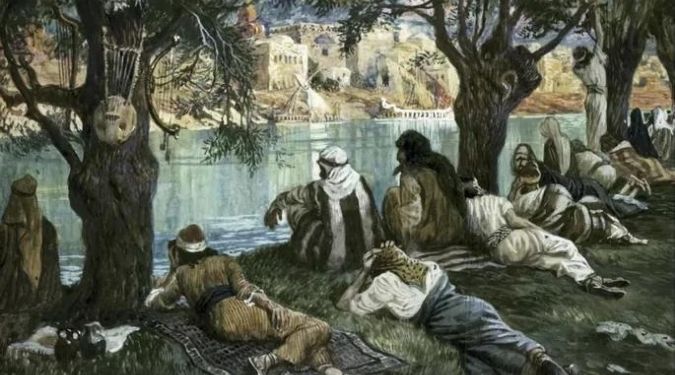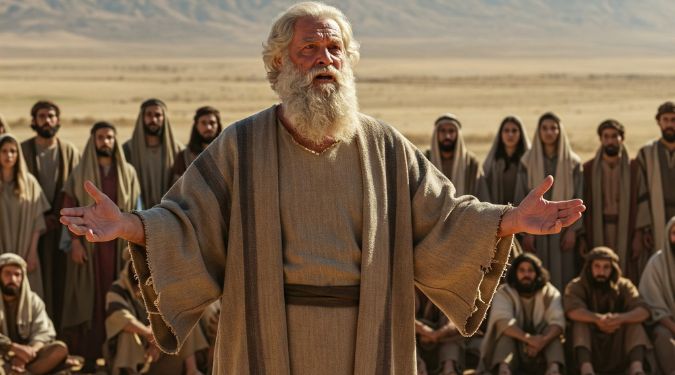By the waters of Babylon, there we sat down and wept, when we remembered Zion.
Psalm 137[136]:1
Soon after King Nebuchadnezzar had hauled away to Babylon the educated elite and skilled tradesmen of Jerusalem and their families, the prophet Jeremiah wrote these words to the newly exiled:
“Thus says the Lord of hosts, the God of Israel, to all the exiles whom I have sent into exile from Jerusalem to Babylon: Build houses and live in them; plant gardens and eat their produce. Take wives and have sons and daughters; take wives for your sons, and give your daughters in marriage, that they may bear sons and daughters; multiply there, and do not decrease. But seek the welfare of the city where I have sent you into exile, and pray to the Lord on its behalf, for in its welfare you will find your welfare.
Jeremiah 29:4-7
Contradicting the false prophets who were predicting that the exile would quickly end and that the captives would soon return to Jerusalem, Jeremiah told them that they would be exiled for seventy years and that they were to settle in, build big families, contribute to the welfare of the pagan city in which they found themselves, and to even pray for that city. In a sense he said to them, “Stop weeping.”
That’s a fascinating story, but how can we derive a spiritual benefit from it?
As it turns out, Jeremiah’s advice to the exiles is reflected in the teaching of our Lord and Saints Peter and Paul. When our Lord prayed for us after the Last Supper, he said that we were “not of this world” [John 17:14]. St. Peter told us that we too are “aliens and exiles” [1 Peter 2:11] and St. Paul reminded the Philippians that their “citizenship is in heaven” [Philippians 3:20].
Beloved, I beseech you as aliens and exiles to abstain from the passions of the flesh that wage war against your soul. Maintain good conduct among the Gentiles, so that in case they speak against you as wrongdoers, they may see your good deeds and glorify God on the day of visitation.
1 Peter 2:11-12
St. Peter wanted “the exiles” to live in such a manner that “the Gentiles…may see your good deeds and glorify God on the day of visitation.”
In his time, the prophet Jeremiah also alluded to this witness, although a bit more subtly:
At that time Jerusalem shall be called the throne of the Lord, and all nations shall gather to it, to the presence of the Lord in Jerusalem, and they shall no more stubbornly follow their own evil heart.
Jeremiah 3:17
How will the pagans (“all nations”) first discover the God of Israel? In their encounters with the exiles in Babylon! That’s the silver lining of the Exile, which heretofore was described a medicinal punishment for Israel’s sin. St. Peter makes it clear that the Gentiles, that is, the people around us living godless and worldly lives, will first encounter Christ through our example.
Like the exile of the Judeans to Babylon, the Church’s exile will undoubtedly last for quite some time. We can lament the state of the world. We can lament being called “backwardist” or “rigid” our own Church leaders for adhering to traditional devotion and morality. But we should stop to take time to reflect how important to our evangelical efforts is the manner in which we do the ordinary things in life: building large, godly families, conducting our work and business in a moral fashion, engaging in civic life, and praying for the lost communities in which we find ourselves.



